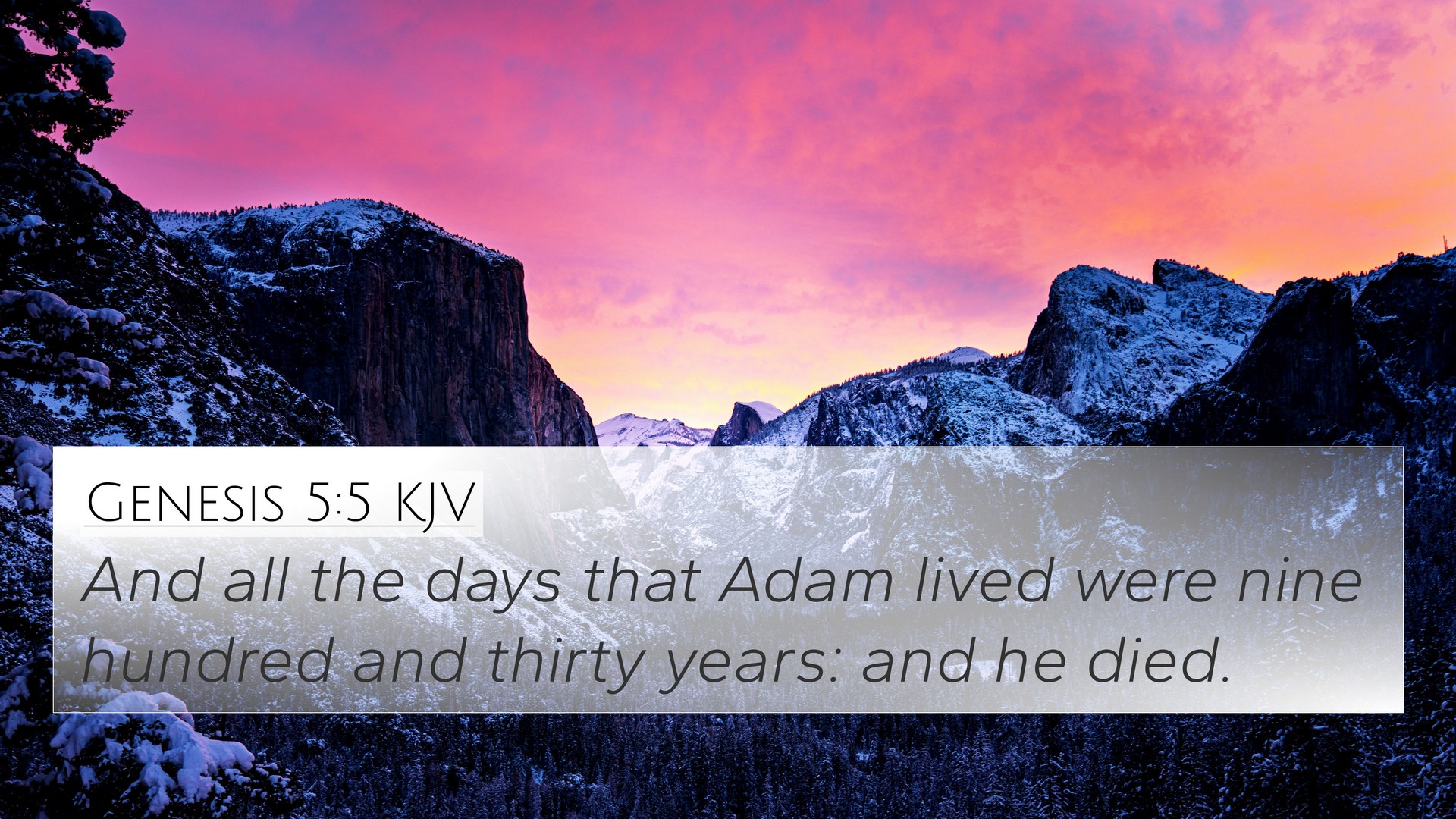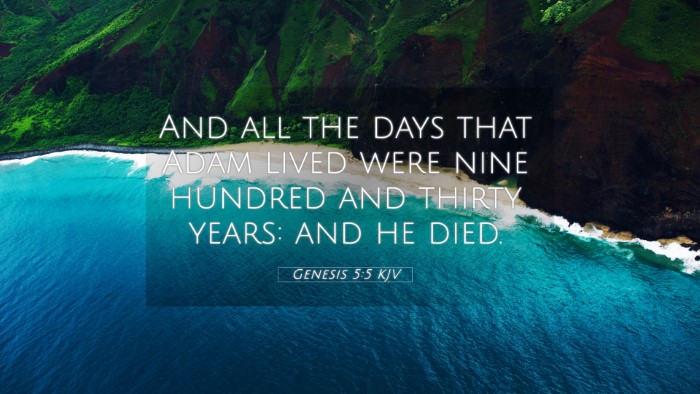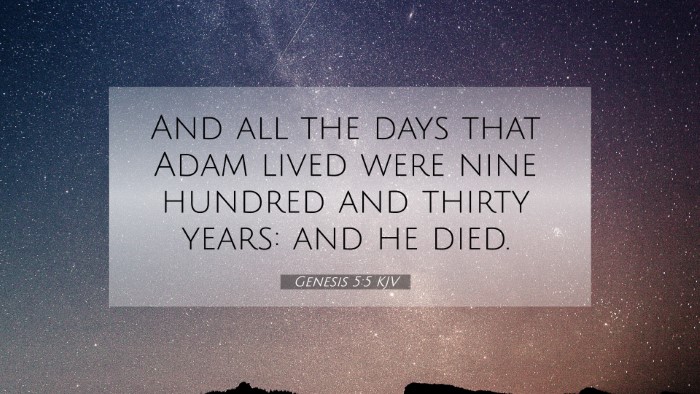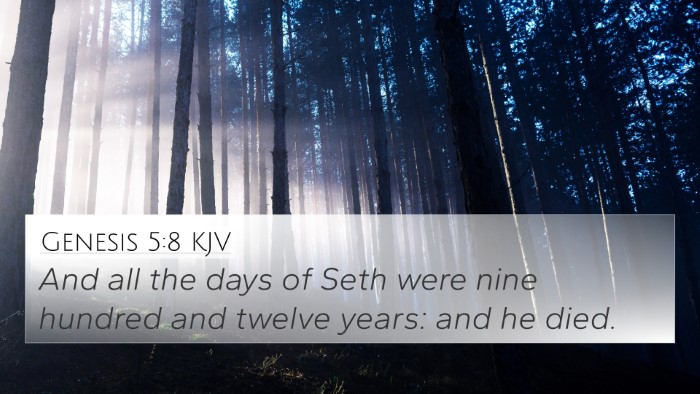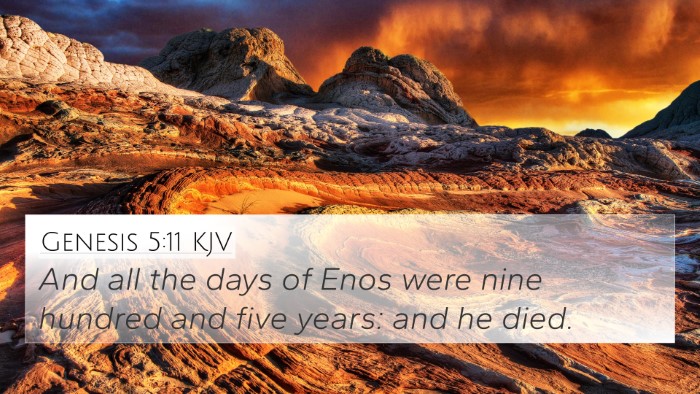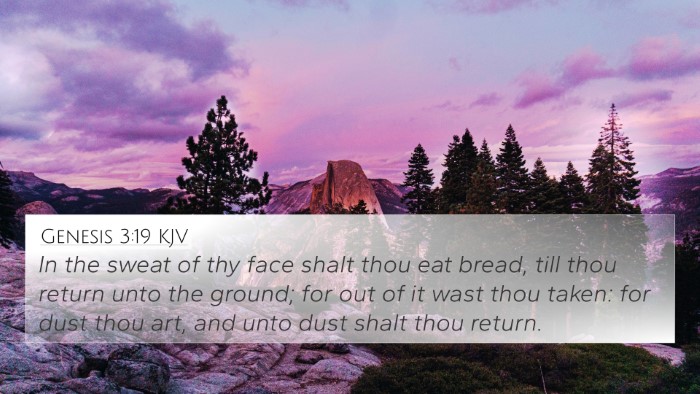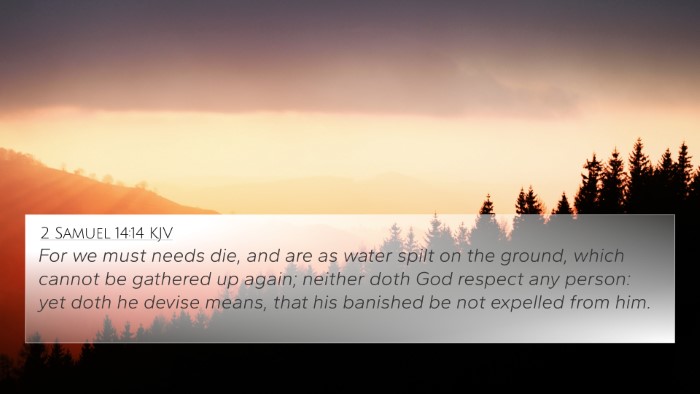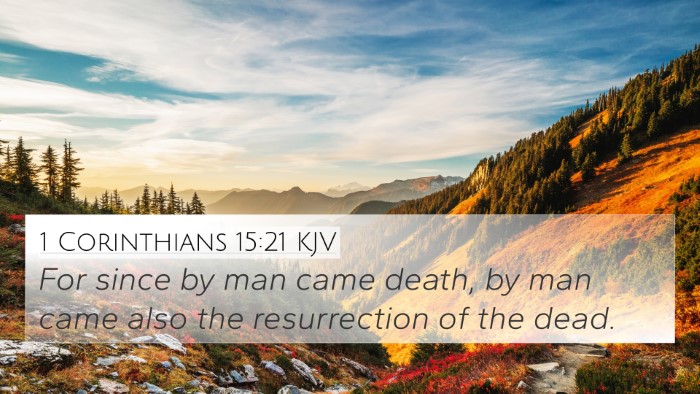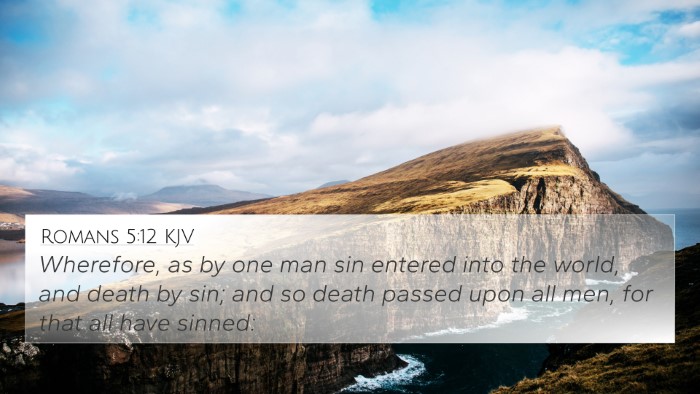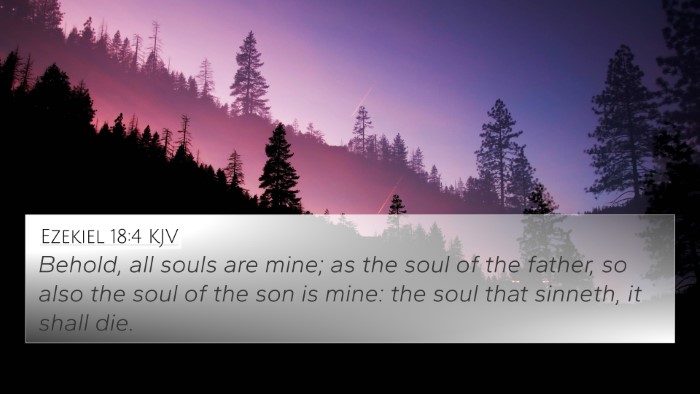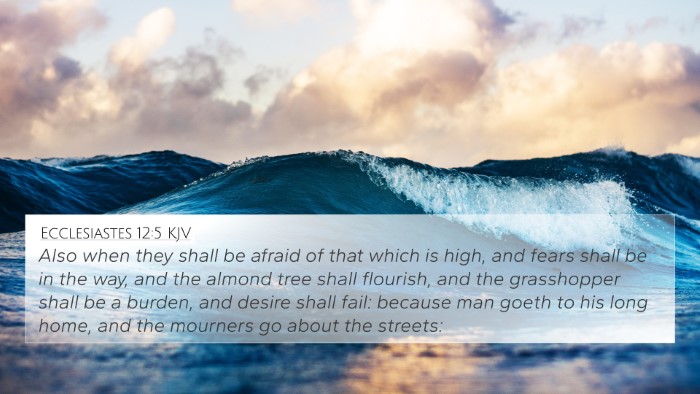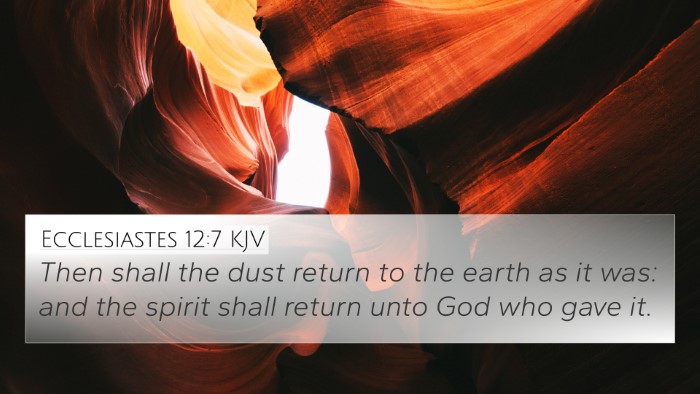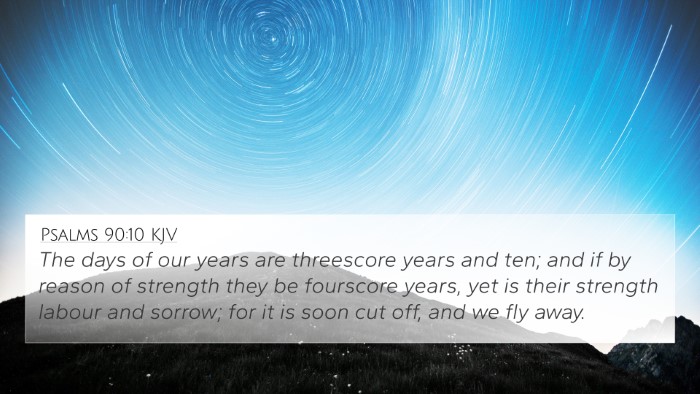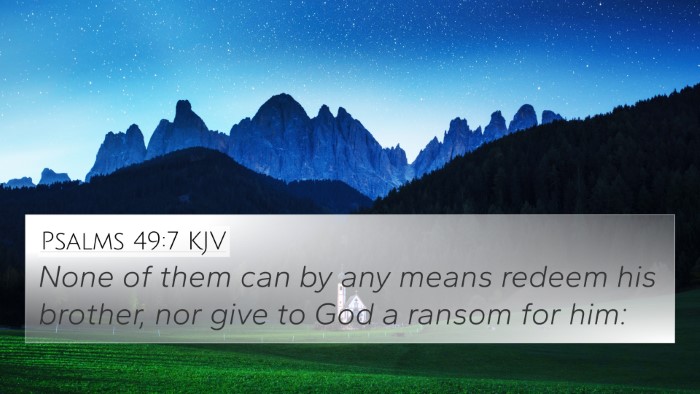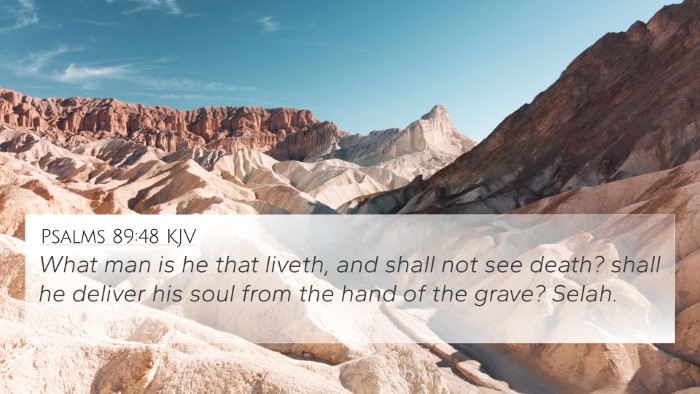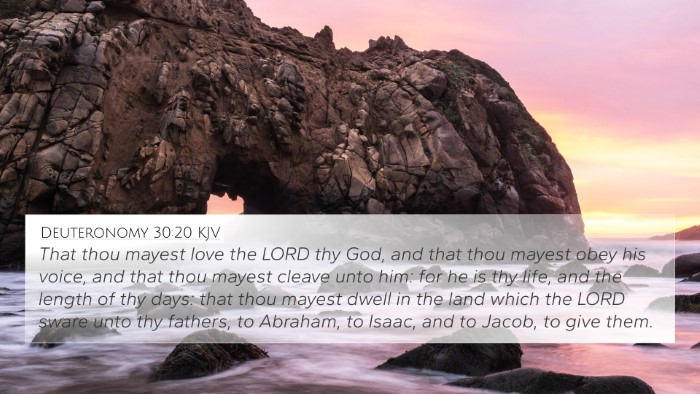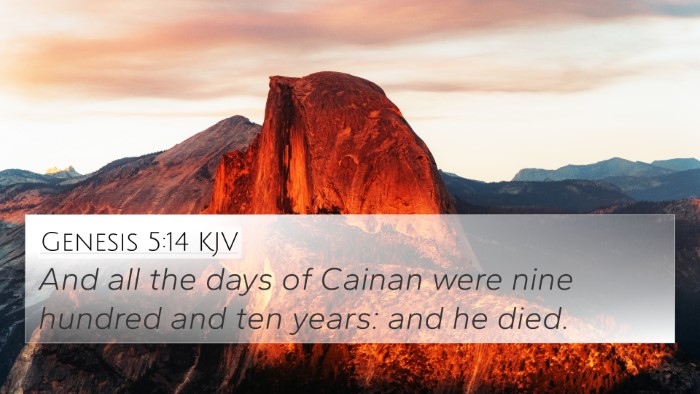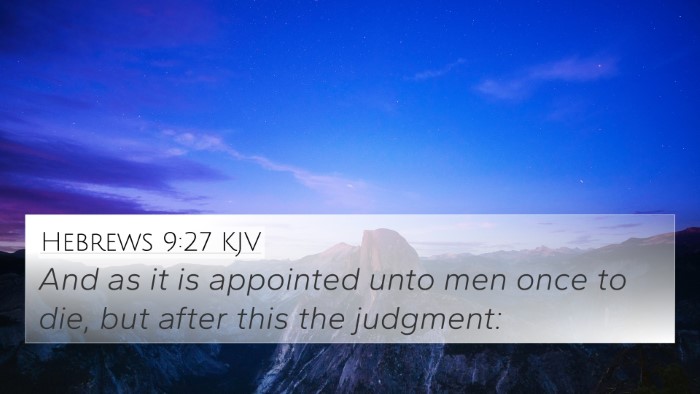Meaning and Interpretation of Genesis 5:5
Verse Reference: Genesis 5:5 states, “So all the days of Adam lived were nine hundred and thirty years, and he died.”
Overview
Genesis 5:5 serves as a pivotal point in the genealogical account of the Bible, marking the end of Adam's life. The verse succinctly summarizes the entirety of Adam's life span, emphasizing both his longevity and mortality. The brevity of the statement invites deeper reflection on the themes of life, death, and the human condition.
Commentary Insights
-
Matthew Henry:
Henry notes the sorrowful reality of mortality that this verse encapsulates. Adam, the first human, experienced life for nine hundred and thirty years, yet he ultimately faced the inevitability of death. This serves as a reminder of the consequences of sin, as promoted in the earlier chapters of Genesis.
-
Albert Barnes:
Barnes emphasizes the significance of the age mentioned, highlighting how Adam's long life exemplifies God’s grace and the initial creation before the full effects of sin accelerated mortality. This age also sets a precedent in the genealogical records that follow.
-
Adam Clarke:
Clarke points to the resultant teaching of mortality, which serves to remind humanity of its transient nature. He suggests that despite Adam's prestigious beginning and prolonged life, death came as a certainty, a reflection on the fleeting nature of earthly existence.
Thematic Connections
This verse touches on several significant themes relevant to a broader biblical context:
- **Mortality and Sin:** The connection between Adam's sin and the resulting mortality of humanity, as indicated in Romans 5:12.
- **Longevity in Early Genesis:** Comparisons can be made with other long-lived figures in Genesis, such as Methuselah (Genesis 5:27), emphasizing a pre-flood condition.
- **Eschatological Implications:** The idea of life duration touches upon theological discussions in 2 Peter 3:8, where the nature of time is explored concerning God’s eternal nature.
- **Human Experience:** The universal experience of death and its implications for humanity's destiny is echoed throughout the scriptures, e.g., Hebrews 9:27.
Bible Verse Cross-References
Here are key verses that relate to Genesis 5:5:
- Genesis 3:19 - Discusses the curse of death as a consequence of disobedience.
- Romans 5:12 - Connects the reality of death entering through sin.
- Hebrews 9:27 - Affirms that it is appointed for men to die once.
- Psalm 90:10 - Offers reflection on the lifespan of humans.
- 1 Corinthians 15:21 - Addresses the idea of resurrection through Christ, contrasting Adam’s death.
- Ecclesiastes 3:2 - Establishes a time for every activity, including a time to be born and a time to die.
- Genesis 5:27 - Compares Adam's age to Methuselah, emphasizing long lifespans.
Conclusion
The lines of reflection that emerge from Genesis 5:5 lead us to a comprehensive understanding of mortality as a result of sin and the hope offered through the redemptive narrative of the Bible. The connections between Bible verses reveal the interplay of life and death and provide insights into God’s overarching plan for humanity.
Further Study Tools
For those interested in exploring these themes further, utilizing tools for Bible cross-referencing can greatly enhance understanding. Consider the following:
- Bible concordance.
- Bible cross-reference guide.
- Cross-reference Bible study methodologies.
Reflective Questions
In your study, consider these questions:
- What verses are related to Genesis 5:5 that explore human mortality?
- How do the teachings of New Testament apostles illuminate the themes presented in Genesis?
- What lessons can we learn about our own lives from Adam’s long life and eventual death?
